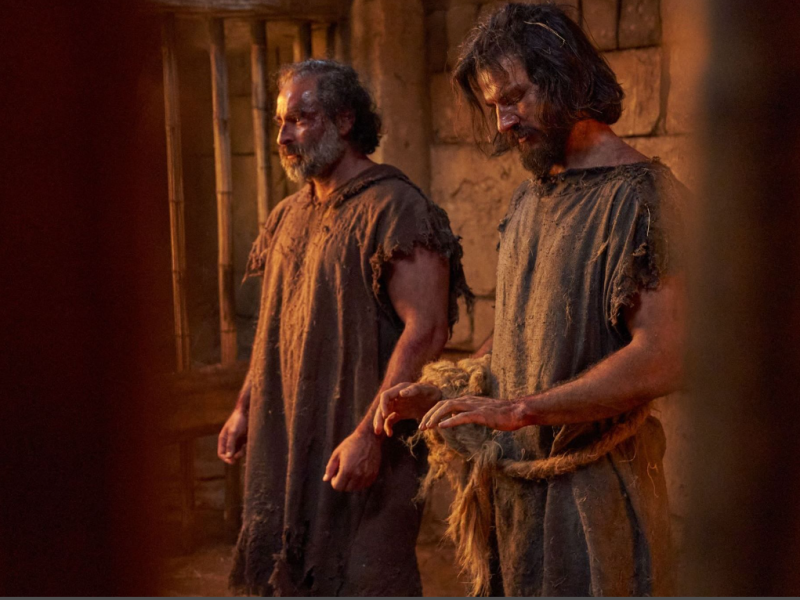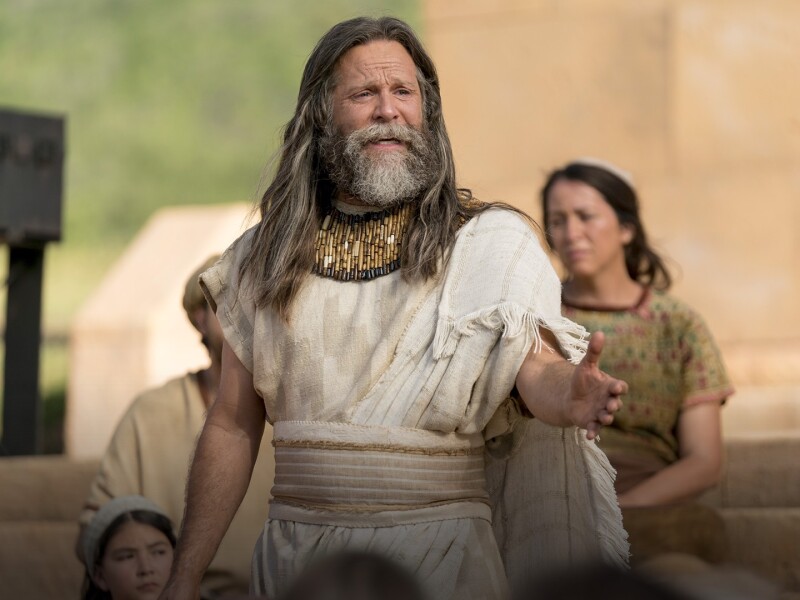According to the Title Page of the Book of Mormon, the book’s purpose is to convince all people that “Jesus is the Christ.” During this Christmas season, as believers worldwide celebrate God’s goodness and love in sending His Son, we decided to ponder how the Book of Mormon has strengthened our faith in Christ. We asked our study group guests to think about His birth, reflecting on why He came and how His coming has changed their lives. As you listen to this week’s episode, we hope you experience the true joy of Christmas—our Savior, Jesus Christ.
Our study of the Book of Mormon this year has been incredible. For 52 weeks we have dug into this book and changed. Hopefully your love of the Book of Mormon has grown. The prophet Moroni loved it too and one of the last things he wrote is for us to consider this book, all that it contains and to discover for ourselves if it is not true. He wants us to challenge the book and to learn for ourselves if it is true. As we study Moroni 10 together, listen and notice the spiritual impressions you receive as the Holy Ghost helps you discover or rediscover the truthfulness of this book and how merciful the Lord hath been to all of us, His people that he loves.
Moroni 7–9 are teachings and 2 letters from Mormon that Moroni decided to include on the plates. They describe overwhelmingly sad circumstances, and yet the council is to have hope. How can we have hope, and faith, and charity regardless of our circumstances?
Do you remember the magazines they used to have for kids with Seek and Find games? These would have a list of items hidden in the picture that you had to find. Today as we study Moroni 1–6 we are trying out a seek and find podcast where we look for questions and the administrative details that can point us to the answers.
As the Book of Mormon nears its conclusion we have included a few more war chapters. It's fair to ask why Moroni, who saw so much war and destruction himself, would choose to bring in these chapters describing bloodshed and evil. This week while reading Ether 12–15 we will try to understand the context Moroni was coming from, the many chapters of war in the Book of Mormon, and the lessons we can learn from modern day conflict.
When the Jaredites arrived at the promised land, they rushed onto dry ground and thanked the Lord for the “multitude of his tender mercies” (Ether 6:12). How many times are we that overwhelmed by the grace and guidance of God in our lives? And how hard can it be to even recognize those tender mercies? Ether 6–11 is full of tender mercies that some of the people saw, and others missed because of their pride. So, let’s use this week to find gratitude for all the little things from God in our lives.
What comes to your mind when you hear the word “cry”? Is it a crying baby, a good cry with a friend? Maybe you recently cried or are even crying right now. This word can have several meanings, and everyone reacts differently to those who cry. Today’s discussion of Ether 1–5 contains many cries, and we are going to discuss them and how the Lord responded.
Moroni addresses us directly in Mormon 8:35 when he says, “I speak to you as if you were present, and yet ye are not. But behold, Jesus Christ hath shown you unto me, and I know your doing.” What do you think Jesus showed him? And as a result, what do you think Moroni is going to say to us? This week’s chapters of Mormon 7–9 answer those questions. Let’s prepare our hearts to receive his counsel.
Take a moment and place your hand over your heart. How is your heart today? If it could talk, what would it say? Have you ever heard the sound of your own or a loved one’s beating heart on a stethoscope or ultrasound? Of all the things to hear, it is the heart that connects you to life because it is life. And for today’s discussion of Mormon 1–6, the heart dictated life for the Nephite people. Let’s dive into the impact their hearts had not only on themselves but also on our lives today.
This principle from 3 Nephi (and some help from my stopwatch) reveals an empowering truth.
3 Min Read
“Most of the best people who ever lived weren’t very famous either. Serve and grow, faithfully and quietly.”
3 Min Read
God wants us to live with joy, not guilt that we are not doing enough. Find peace by noticing the subtle signs of progress in your life.
5 Min Read
Alma's son Corianton pursued a harlot and had significant concerns about the gospel. What can we learn from what Alma chose to say to him?
4 Min Read
Did you know Alma chapters 30–35 were originally one chapter? Reading the text as one block reveals an important question (and inspiring answer).
4 Min Read
I’ve realized Amulek is poignant inspiration to anyone feeling like their life is falling apart even though they chose to do what was right.
3 Min Read
We know we are the spirit children of Heavenly Father, so how is it that we can also be the children of Christ? The answer is wonderfully ennobling.
2 Min Read
We love Enos for his heartfelt prayers. Here are a few details about how he prays you may’ve not noticed but that can help you in life.
4 Min Read
Studying Jacob may help you see how both deep sorrow and anxiety can coexist with God’s goodness.
4 Min Read
Has the promise of prospering in the land led us to believe that if we keep the commandments, life will be easy?
5 Min Read
“Falling down” at the feet of Jesus can become an instructive, beautiful, inspiring detail in Lehi’s vision of the tree of life.
4 Min Read
Sometimes knowing leads to doing, and other times doing leads to knowing.
4 Min Read
Christ asked His disciples in America three questions before His ministry there ended: 1) What shall I give unto you? 2) What do you desire of me? 3) What should I do unto you? We can think about how we would answer these questions today and learn a lot from the people’s responses in 3 Nephi 27–4 Nephi. Their answers set up one of the great eras of unity recorded in the Book of Mormon.
The heart of the fathers will turn to the children, and the heart of the children to their fathers. The spirit of Elijah is promised in every one of the standard works. Who are we remembering when our hearts are turned to those who came before us? Our study of 3 Nephi 20–26 will give an idea, and teach how the House of Israel can further our understanding of this sacred promise.
President Ezra Taft Benson taught: “3 Nephi contains some of the most moving and powerful passages in all scripture. It testifies of Jesus Christ, His prophets, and the doctrines of salvation” (“The Savior’s Visit to America,” Ensign, May 1987, 6). Our study of 3 Nephi 17–19 will focus on more of the Savior’s teachings to the Nephites, including passages on compassion, mercy, and the sacrament.
In the New Testament, Jesus delivered the Sermon on the Mount to encourage His disciples to strive for their best with full purpose of heart. Following His Resurrection, Jesus appeared to the Book of Mormon people in the Western Hemisphere and delivered the same message. 3 Nephi 12–16 records this second witness of light, meekness, and fruit.
The theme for Sunday on Monday all year has been to anticipate Jesus. We look forward to His Second Coming the way the Nephites were looking forward to His arrival, and we have finally reached those chapters. 3 Nephi 8–11 has been written about and studied for generations, but today, we are giving special attention to how these chapters have been expressed in art—musically and visually.
President Ezra Taft Benson once said that “the record of the Nephite history just prior to the Savior’s visit reveals many parallels to our own day as we anticipate the Savior’s second coming.” Our theme all year for the Book of Mormon has been to anticipate Jesus. 3 Nephi 1–7 has the final chapters before His coming, and we will take President Benson’s council and apply those times to our day.
















